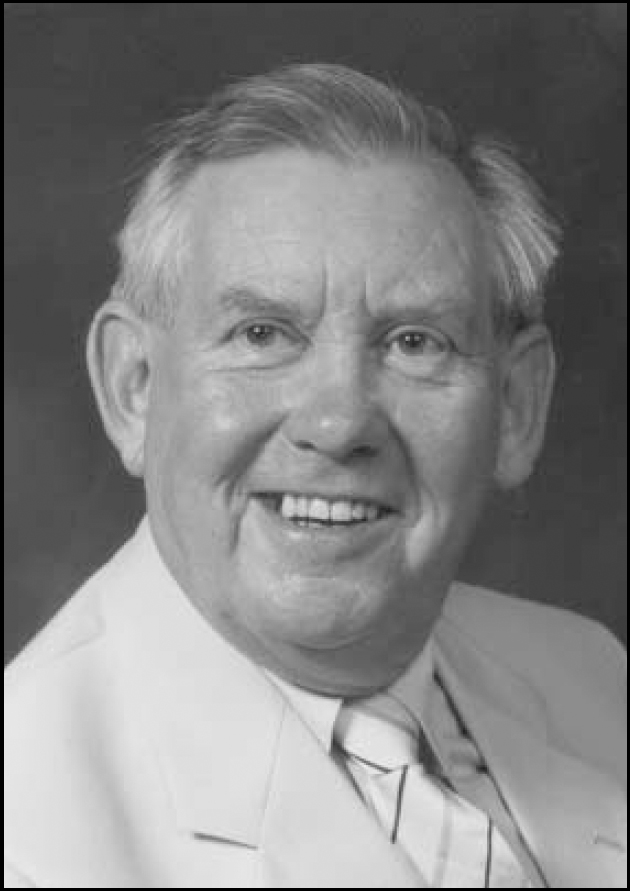Peter Brook, as he was known, came from a medical family with a strong social conscience. His father was a general practitioner in Sidcup, who twice stood for Parliament and whose contribution to the local hospital led to a ward being named after him. His mother was a governor at Guy's Hospital.
He was born on 17 March 1928 and educated at Eltham College and Guy's Hospital, qualifying in 1952. He spent 3 years at the Maudsley before he became a senior registrar at Guy's and Bexley Hospitals. In 1962 he was appointed as consultant at Warley Hospital, Brentwood. He won his MD(Lond) in 1974 and was elected FRCPsych in 1971. During this time he began to turn towards an interest in older people. When the opportunity came to change course and become the first psychogeriatrician in Cambridge, he took it eagerly.

When he arrived, he inherited numerous rambling wards at the old Fulbourn Hospital and started to found the present service. It was a time of change and there was a certain tension between the hospital service and the newly-established Cambridge Clinical School. Peter's wish to improve and maintain high standards of practice, teaching and research put him firmly on the side of academic development. So, although he was very much an NHS consultant, he was also an important advocate and much valued supporter of the then comparatively new University Department of Psychiatry. He later endowed a prize for medical student research, the Peter Brook Award.
During his time in Cambridge, the mental health services for older people were transformed. This included developments in the community, starting with the first community psychiatric nurses and led to the development of highly-admired integrated multidisciplinary community resource teams, long before the current vogue for interagency working. In the hospital, there was significant progress with improving the quality of wards and increasing the focus on acute and short-stay admissions rather than long-term care. Peter helped initiate one of the first respite care schemes for people with dementia, and he was one of the first people to draw attention to the profound problems faced by carers. It was a pleasure that in 1999 he was able to open the new old age psychiatry ward at Addenbrooke's Hospital, a development that he had argued for over many years.
Peter had a long association with the Royal College of Psychiatrists, demonstrating an important interest in training and education. He became a member of the Royal Medico-Psychological Association in 1962 and was a Foundation Fellow of the College in 1971. In 1974, he was elected as a Sub-Dean, an office he held for 4 years. He was subsequently also voted a member of the College's Court of Electors and he served on all the key education and training committees. Perhaps his best known piece of work was the influential College report on Psychiatrists in Training (1973), which formed the basis of his own MD thesis. He compiled another College report on Medical Students’ Electives (1981) and published, with Richard Wakeford, a survey of consultant psychiatrists’ attitudes and practices in relation to continuing medical education (1987).
In the late 1980s, he was integral (together with the late Bernard Reiss) in establishing the Hughes Hall Project for Later Life, an epidemiological study of nearly 3000 people in Cambridge over the age of 75. Ably led by Daniel O’Connor, this study would simply not have been possible without Peter's enthusiasm to support research and crucially, his excellent relationships with local GPs who agreed for their patients to be approached. The study provided a prevalence figure for dementia in this population and was one of the first to examine the impact of a community mental health team on demands for services, such as residential care. Perhaps, not surprisingly, the presence of the team seemed to stimulate demand, probably due to identifying needs that were previously ignored. The second wave of the study (the Cambridge Project for Later Life) was funded by the MRC, and even now the survivors of the cohort are still being followed up.
Peter was especially proud of being a Fellow of Hughes Hall, relishing his connections with the University. In later years, he was the College Archivist at Hughes Hall. He was also a member of the Senior Combination Room of Gonville and Caius College, where his father had been a student, and he endowed a College Prize for medical students in memory of his parents.
Although he developed myeloma fairly soon after his retirement, he remained active as an organiser of the local branch of University of the Third Age and with work on naval history, publishing a monograph on Tyneside-built Edwardian warships. Peter had a deep love of the theatre, from a student interest in amateur drama, right until the end of his life. He was always a positive and optimistic person, and this continued despite his long illness. His measured, courteous outside manner contained within a warm, facilitatory, liberal-minded and generous man.
He died at home on 18 December 2003, and leaves his wife, Joy, a son, daughter and two grandsons.
Acknowledgements
Thanks to Dr Jim Willis and Vanessa Cameron for helpful information.



eLetters
No eLetters have been published for this article.